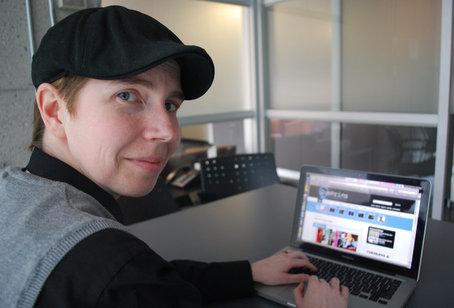It’s been nearly two years in the making. Now Queeries magazine, a new publication at Pink Triangle Press, is set to fill “a giant void” for queer women in Canada.
People are looking for a voice for queer women and “just don’t have it,” says Suzy Malik, publishing editor. “They are just hungry for this.”
Although an official launch date has yet to be announced, Queeries is already creating a buzz among queer women. “For years I was asked, ‘When is someone going to make a fab for women?’ I was with them. I wanted that to happen. Then I realized, I’ll just have to make it myself,” Malik says.
But getting it off the ground took some convincing. “It’s tricky to convince people that the queer women’s market is one they should invest in. There’s very little statistics about queer women. One of the things I heard repeatedly in pitching this concept was, ‘Queer women can’t even maintain their own bars. If their bars don’t last, how will this last?’”
And that’s exactly why Queeries has the potential to be so successful, Malik says. Queer women aren’t all clustered in one place, and their interests and opinions run the gamut. “So offering something like this that strives to be pretty well-rounded, I think will serve the community really well.”
The free magazine will live mostly online, as queeriesmag.com, although Malik has left the door open for partnerships with Xtra and other queer publications. Queeries will target mostly lesbian and bisexual women as well as trans men and women.
“We’re going for a lifestyle magazine approach,” she says. It won’t be hard news. Queeries will cover health, fitness, arts, travelling, nightlife and trends.
Malik is especially excited about the magazine’s “history” section. She sees it as a chance to chronicle the riotous past and vivacious present of queer women’s history.
“As a community, history is often passed on through friends when people get together in bars, and there’s a divide between age groups,” she says.
“So the opportunity to serve up content that’s interesting to a younger audience but also speaks to an older audience is very exciting,” she adds. “Allowing them to communicate their histories is something I’m really interested in.”
The site is already bursting with opinion, guest bloggers and features, with much more on the way. “Things are really coming together now.”
“Right now there is a slant towards Toronto, but I am trying to connect hubs across the country.”
Queeries picks up where Siren left off, Malik says. Siren was a bimonthly Canadian magazine that folded in 2004 after eight years of publishing stories for and about lesbian and bisexual women. Sadly, Siren struggled financially right up until its last days. Its Toronto predecessors include Broadside and Quota.
The No More Potlucks project, “a play on the idea that lesbians only get together for potlucks,” is an online arts and academic journal with bilingual articles, photography and more than 70 hours of Dykes on Mykes podcasts. Then there’s After Ellen, a popular blog focusing on American entertainment. Malik says the blog serves more than 700,000 users a day. “People from all over the world go there because there isn’t much else out there.”
But Canada still remains underserved, Malik says. “So that left a great little pocket for us to pop up and fill a real need.”
Check out queeriesmag.com, “like” the Facebook Page and follow Queeries on Twitter @QueeriesMag.

 Why you can trust Xtra
Why you can trust Xtra


